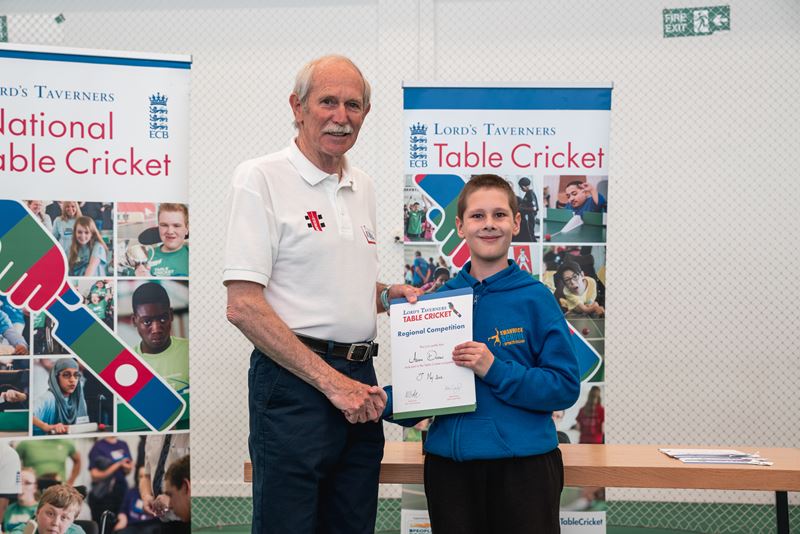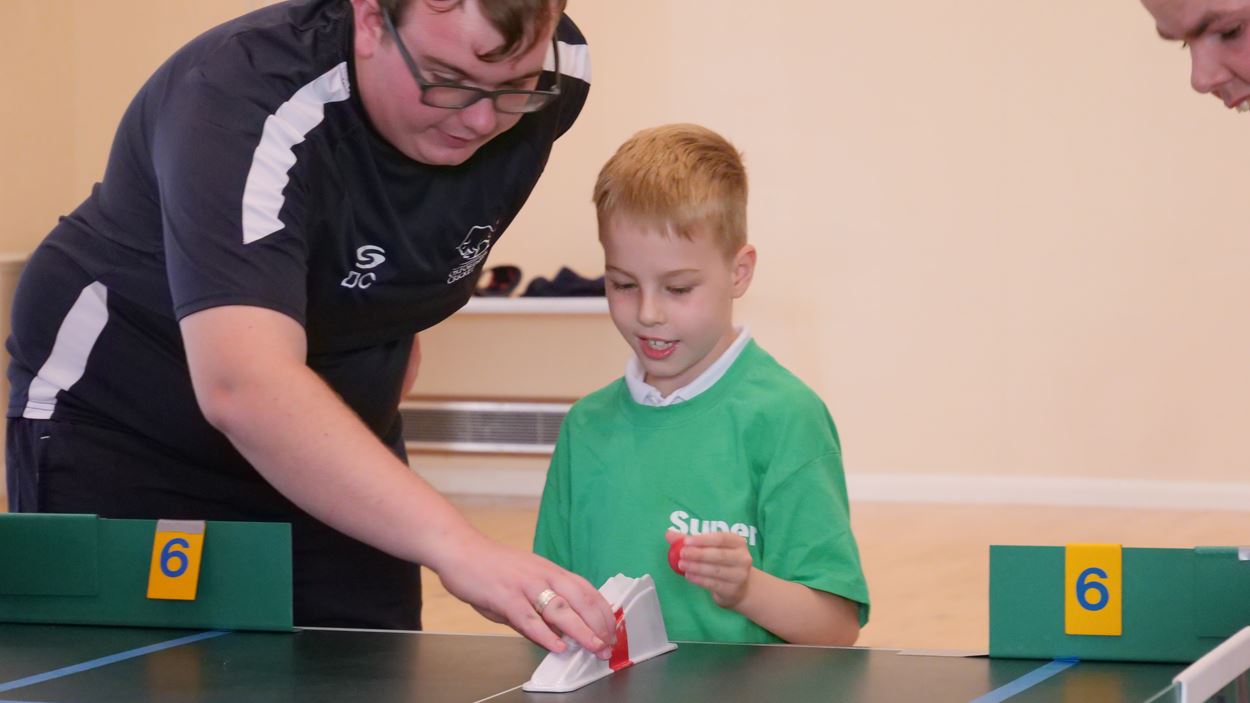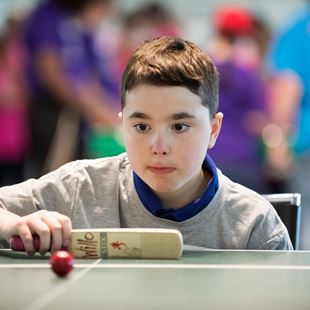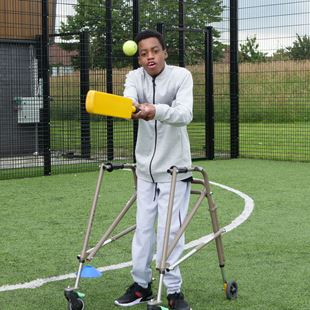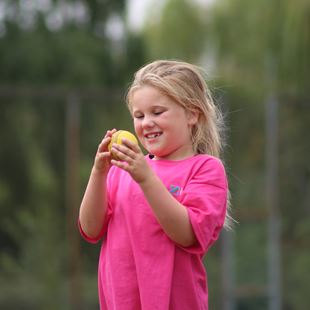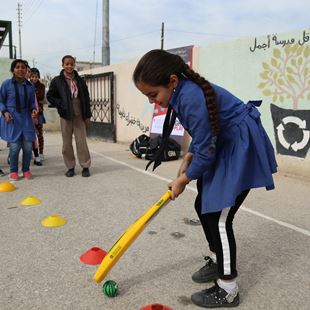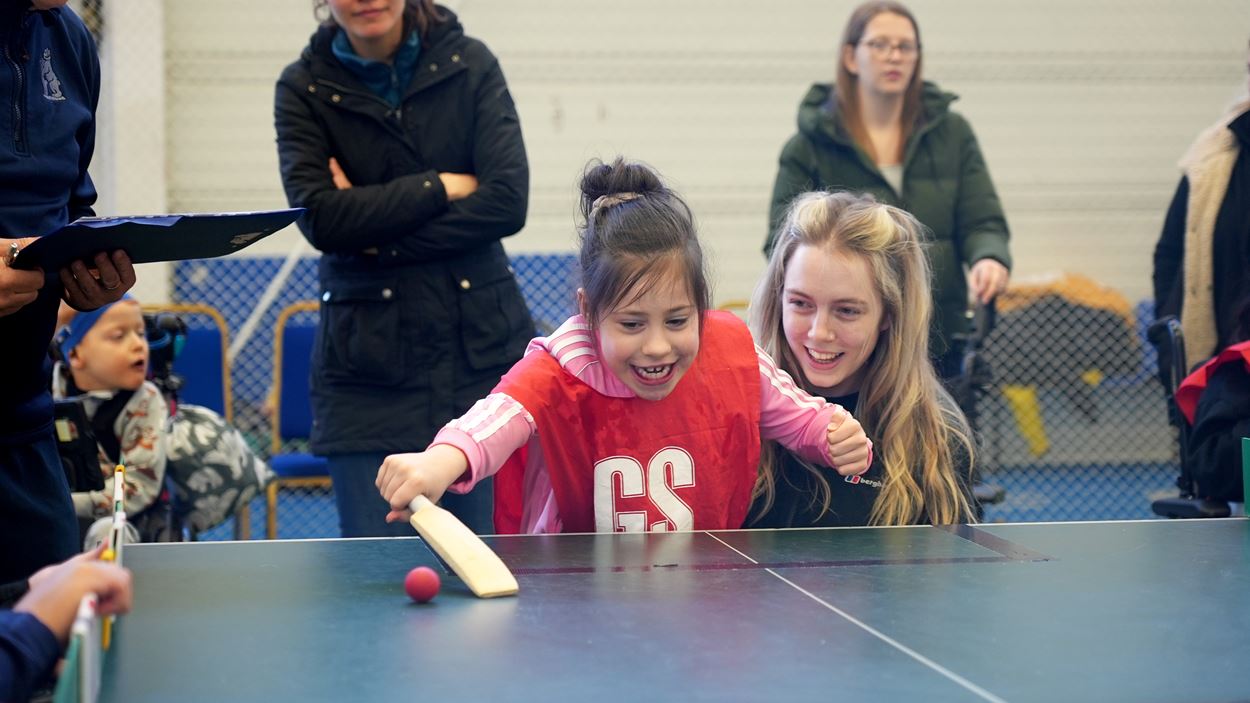
Table Cricket
Discover Table Cricket
- Table cricket is an adapted version of cricket that is played on a table tennis table with teams of six taking it in turn to bowl or bat.
- A game of strategy with different scoring zones and carefully positioned fielders around the table, bowlers use a ramp to deliver the ball to the batter who has to hit the ball into the scoring zones, avoiding the fielders if they can!
- This game has been specially designed to give young people with a disability the chance to play and compete in the sport we all love.
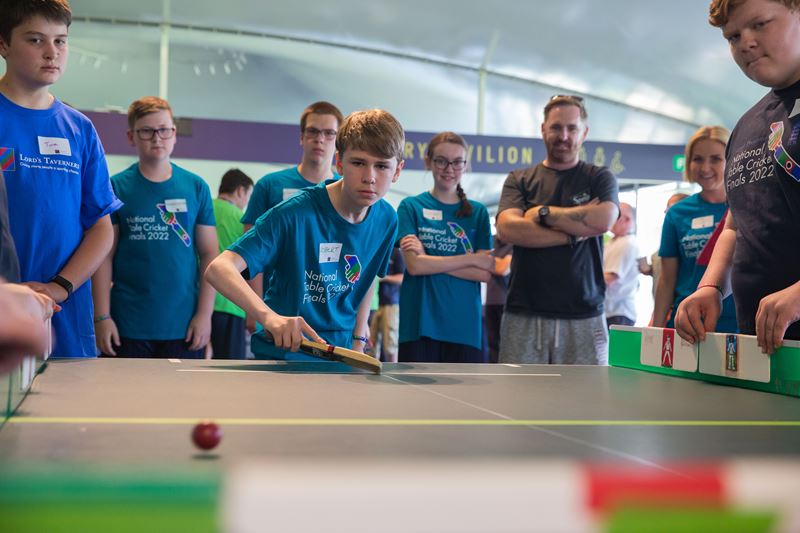
Our Table Cricket Impact
Watch this video to see how schools across the UK participated in our regional competitions to earn their place at our Table Cricket National Finals at Lord's.
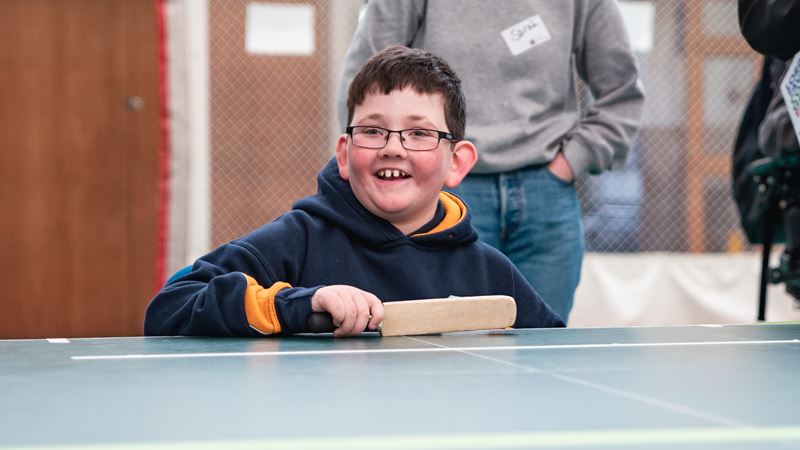
How does it help young people?
- Provides access to sport for young people with both learning and physical disabilities.
- Improves coordination and cognitive skills.
- Develops teamwork and social skills.
- Understand tactics, draw the best out of team players and to build a social life.
- Allows progression for young volunteers involved in coaching and umpiring, which in turn helps to develop self-confidence, leadership skills and enhances their future employment prospects.
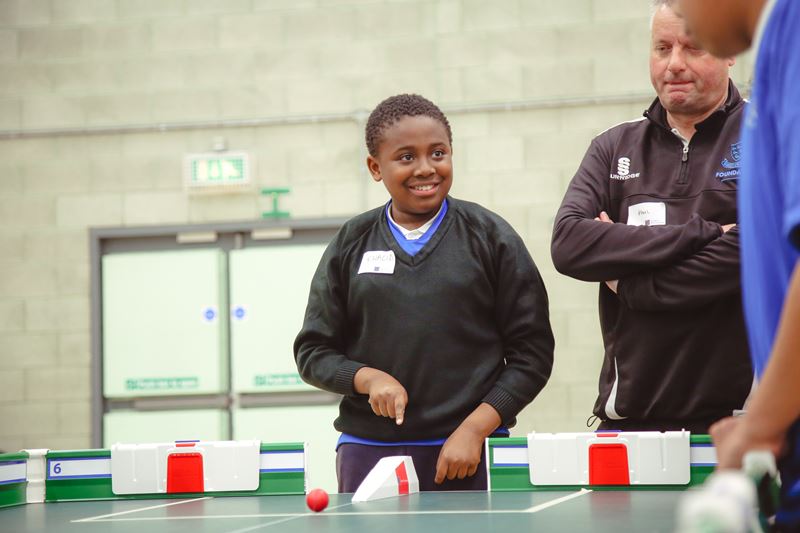
"None of this would have been possible without the confidence and self-esteem that has come because of table cricket"
Bethany loves table cricket. Sadly, the impact of Covid-19 meant that pupils like Bethany, lost the ability to regularly play in school due to shielding and closures. But now we are back playing again, Bethany hasn’t lost any of her enthusiasm for the game and she continues to improve both as a player, and now as a leader.
Read more about Bethany's story here.
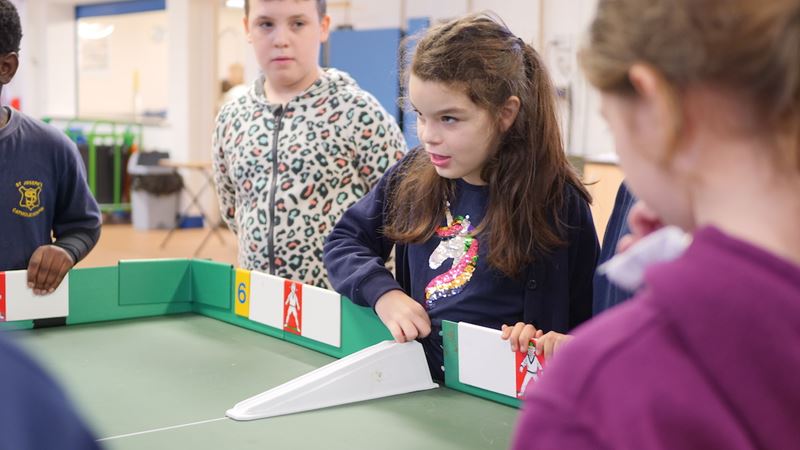
Success Stories
Our Table Cricket programme has allowed disabled people to compete in a sport that they wouldn't before been able to play.
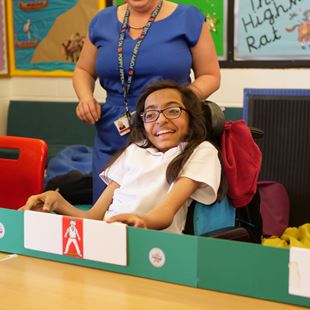
Westlea School
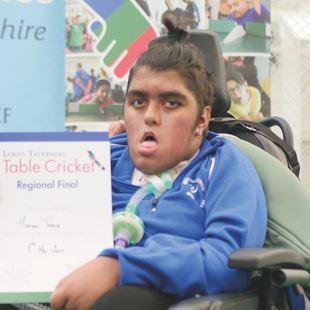
Hafzah's Story
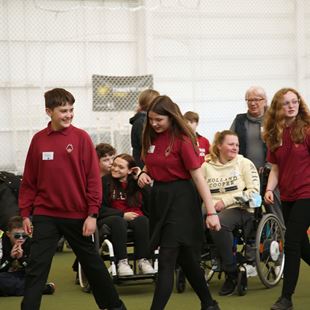
Brimsham Green Young Leaders
National Competition Winners
- 2024 - Beckfoot School (Yorkshire)
- 2023 - Wirral Grammar School (Cheshire)
- 2022 - Beech Academy (Nottingham)
- 2021 - N/A
- 2020 - N/A
- 2019 - Ralph Thoresby School (Leeds)
- 2018 - Ralph Thoresby School (Leeds)
- 2017 - Wilson Stuart School (Birmingham)
- 2016 - Ralph Thoresby School (Leeds)
- 2015 - Victoria School (Poole)
- 2014 - Victoria School (Poole)
- 2013 - Victoria School (Poole)
- 2012 - Oakfield High School (Hindley Green)
For more information about table cricket and to find out how to take part, please email programmes@lordstaverners.org.

Resources
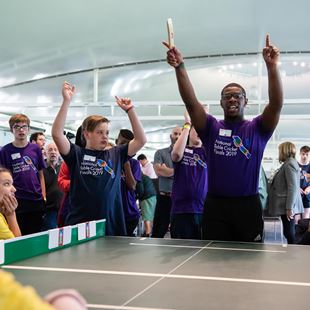
Young Leaders Resources
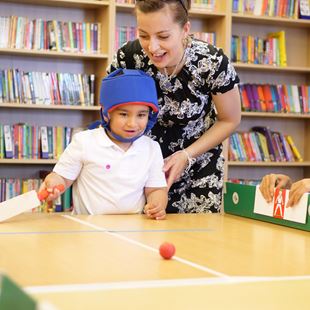
Table Cricket for Schools
The Origins
- Table cricket was invented by Doug Williamson via Project Adapted at Nottingham Trent University in 1990 and then developed at the British Sports Association for the Disabled (BSAD) Mini Games at Stoke Mandeville.
- Promoted by Ken Black at the Youth Sports Trust it was commercially produced and adopted by the ECB during the 1999 Cricket World Cup.
- Since 2003, the Lord’s Taverners has developed the competition on an extensive scale with over 8,000 young people with disabilities participating every year in the National Table Cricket Competition.
The Future
We are working closely with our County Cricket Board partners to increase the amount of table cricket sessions taking place at schools in the UK. We are also working with Sports Leaders UK to develop more young volunteers (many of whom live with a disability) to be coaches and umpires.
